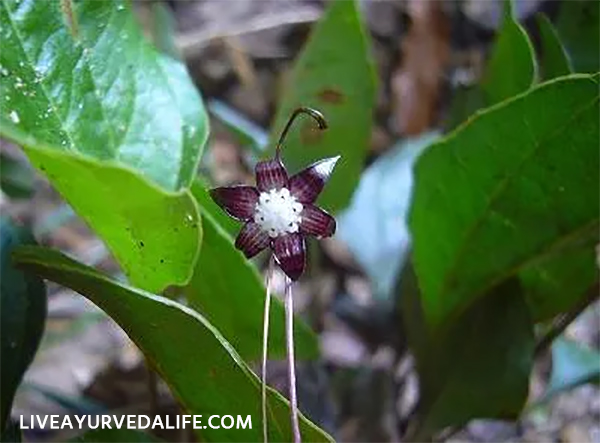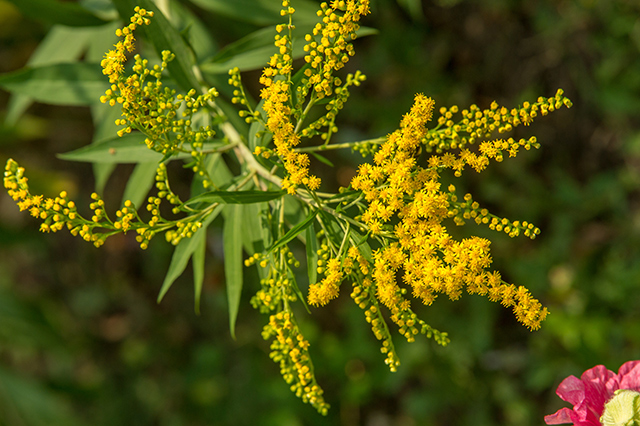What are the medicinal properties of this rare, endangered South Indian plant?
05/04/2020 / By Evangelyn Rodriguez

Trichopus zeylanicus, known locally as arogyapacha in India, is a dwarf shrub that belongs to the Dioscoreaceae or yam family. This medicinal plant has three subspecies, namely, T. zeylanicus subsp. zeylanicus, T. zeylanicus subsp. angustifolius and T. zeylanicus subsp. travancoricus. While the first two are endemic to Sri Lanka, the third subspecies is native to the Western Ghats of South India, as well as to Malaysia and Thailand.
Arogyapacha has a long history of use as an herbal remedy. Before the first study about its medicinal qualities came out in 1988, the indigenous Kani tribe in the Agastya hills — the extreme end of the Western Ghats mountain range in South India — have been using arogyapacha for centuries as a traditional energy booster. The knowledge of the Kani tribe about this rare and now-endangered plant paved the way for scientists to further explore its medicinal properties and potential.
In a recent study, researchers at the University of Kerala in India reviewed the results of pharmacological studies conducted on arogyapacha, also known as “the ginseng of Kani tribes.” They reported that the plant is rich in health-promoting compounds that make it more than just an instant energy stimulant. Their comprehensive review of literature on arogyapacha was published in the journal Herbal Medicine.
The phytonutrient content and medicinal properties of arogyapacha
People of the Kani tribe believe that consuming arogyapacha can help them maintain good health and vitality. Hence they often eat the fruits of arogyapacha or drink water infused with it to combat fatigue. No toxic effect has ever been reported from the consumption of arogyapacha.
In 1995, Indian scientists developed an herbal drug from arogyapacha called Jeevani and released it for commercial production. The pharmaceutical firm who began manufacturing the drug signed a benefit sharing agreement promising to share 50 percent of the license fee and royalty with the Kani tribe. The drug Jeevani is known for having immunity-enhancing, liver-protective, anti-fatigue and DNA-protective properties.
For their review, the researchers searched four public databases for studies on arogyapacha that were published between 1989 and 2018. They found a total of 182 papers, 38 of which were relevant to the scope of their review. The results of preliminary phytochemical screenings of various arogyapacha extracts suggest that it contains plenty of phenolic compounds, alkaloids, flavonoids, tannins, terpenoids, steroids, glycosides and saponins.
Pharmacological studies, on the other hand, showed that arogyapacha has many medicinal properties, such as antioxidant, anti-inflammatory, analgesic, anti-stress, immunomodulatory, anti-diabetic, aphrodisiac, anti-hyperlipidemic, anti-tumor, anti-ulcer, anti-microbial and hepatoprotective activities.
Based on these findings, the researchers concluded that arogyapacha has a huge potential to become a natural medicine for a variety of human diseases. Its abundance in phytonutrients and beneficial properties warrants further studies so that its pharmacological potential can be fully explored and eventually utilized. (Related: Top 10 ways to boost energy throughout the day (without resorting to caffeine or sugar).)
Natural ways to boost your energy
Arogyapacha is a potent natural energy booster, but it is not the only supplement you can take to increase your energy levels. Besides eating a well-balanced diet, getting enough sleep and exercising regularly, you can combat fatigue and maintain healthy energy levels naturally with these nutritional and herbal supplements:
- Ashwagandha
- Arctic root (Rhodiola rosea)
- Coenzyme Q10 (CoQ10)
- Vitamin B12
- Iron
- Creatine
- Citrulline
- Beetroot powder
- Melatonin
- Tyrosine
- Caffeine with L-theanine
Maintaining your energy throughout the day is important for you to accomplish all your daily tasks. The supplements listed above can help boost your energy levels when taken regularly and at appropriate doses. However, while these supplements are all safe to consume, you will need to find out which ones are best suited to your needs. For best results and to avoid unwanted interactions with any medication you are currently taking, seek advice from a trusted natural health practitioner before taking any of these supplements.
Sources include:
Tagged Under: anti-diabetic, anti-inflammatory, anti-tumor, Antimicrobial, antioxidant, arogyapacha, Energy Booster, food cures, food is medicine, functional food, herbal medicine, Herbs, kani ginseng, natural cures, natural medicine, plant medicine, research, supplements




















